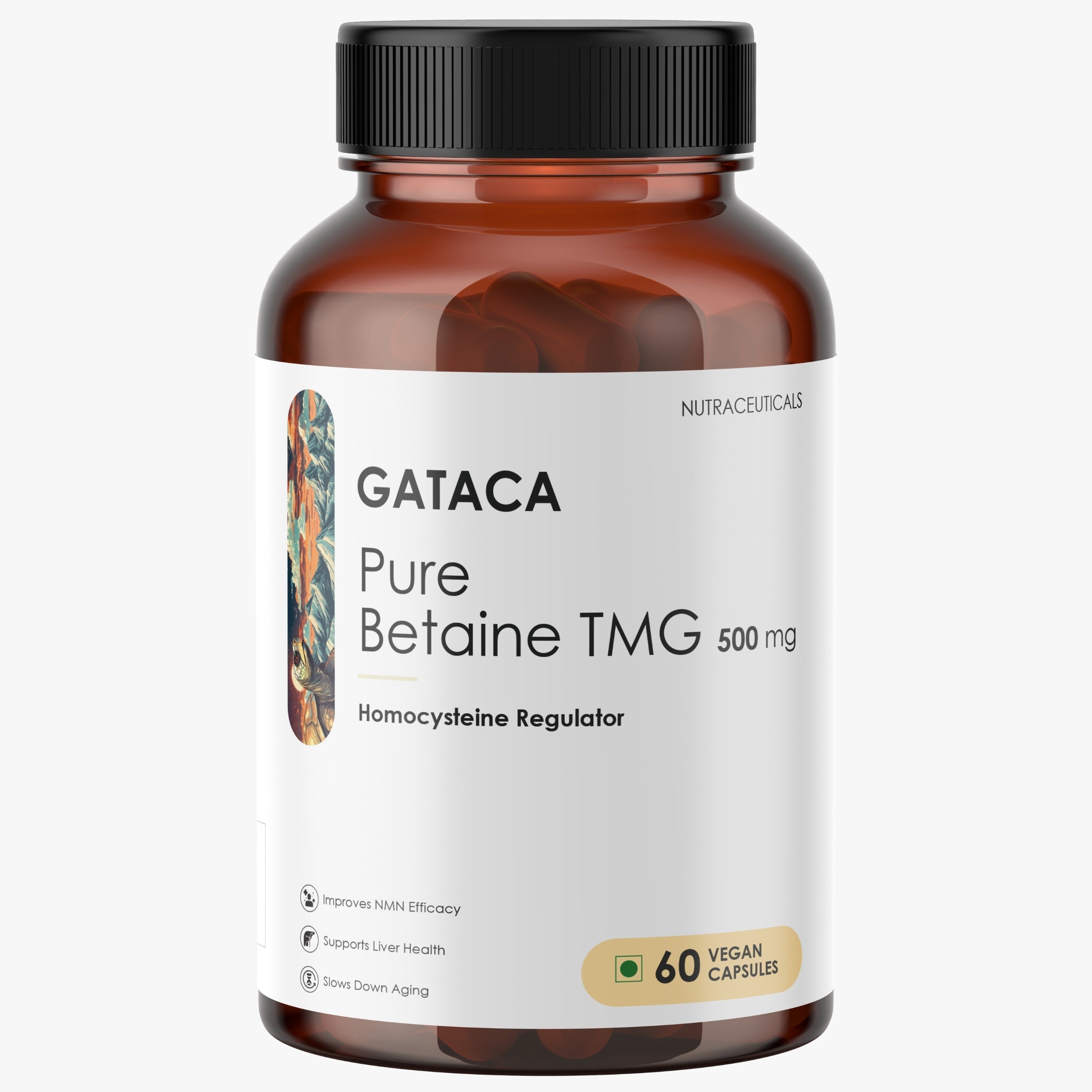Introduction
TriMethylGlycine or Betaine TMG is a simple molecule but can get a lot done in your body. It is basically glycine, which has 3 methyl groups attached to it, which makes it an excellent methyl donor.
Methyl groups are a necessity for hundreds of cellular reactions to occur. Notable among them are DNA modifications, transcription and translation of proteins, to assist the liver so it can function better in the detoxification department and as a crucial inhibitory neurotransmitter in the brain.
Successful methylation also helps in the production of other neurotransmitters like dopamine.
What Are The Benefits Of Betaine TMG Supplement?
Betaine TMG’s main strength lies in its ability to donate methyl groups which help regulate lots of processes in the body. The addition of methyl groups is done by a process called methylation, while removing methyl groups is called demethylation.
The addition of methyl groups is a highly planned process as excessive methylation or undermethylation- both can be problematic. Studies have shown that DNA is tagged with multiple methyl groups - which help regulate its expression
When methylation does not occur normally, a person is more susceptible to certain kinds of cancers, immunity issues and heart disease. All of these have been linked to higher levels of homocysteine, though the exact mechanism is not understood.
TMG is also good for increased endurance, as this was evident in a study conducted on football players. When they were given 2 grams of TMG everyday, they noticed better running speed and muscular strength, with them performing especially well with repeated sprints.
This is because TMG helps the cells produce more creatine - which is fuel for muscle cells. It also helps reduce insulin resistance, when taken with choline. It also influences fat metabolism in positive ways. TMG can also be used for people who have depression or anxiety due to low levels of dopamine in their brain, while also reducing homocysteine levels (high levels of which have been associated with depression too).
Who Should Take Betaine TMG Daily?
People who have high levels of homocysteine in their system due to faulty genes, have heart disease or liver disease and want to improve their metabolism should talk to their doctor before supplementing with TMG.
TMG also helps cells regulate hydration levels, which can be good if you are a fitness enthusiast. Its effects on muscular performance and health cannot be denied either.
Should You Take Betaine TMG With Or Without Food?
You should always take it AFTER a meal to get the maximum benefits from this supplement.
The main advantage of TMG is that there is nothing artificial about it and it is readily synthesised and broken down in our body in normal conditions.
The methyl groups can be taken away and used for a variety of chemical reactions, most of which centre around DNA maintenance and regulation, in detoxification of certain compounds by the liver and in making important neurotransmitters that help improve brain function and mood.
T + N = L + P: TMG Works great with NMN. When NAD+ is boosted, your body might get depleted of methyl groups. TMG restores the methyl groups. Pair with NMN for optimal longevity and performance benefits.
Finally, glycine by itself is a neurotransmitter and the smallest amino acid molecule that can help you sleep better and for longer.
FAQs
1. What is Betaine TMG, and how does it work in the body?
Betaine trimethylglycine (TMG) is a compound that contains 3 methyl groups- which are extensively used for all sorts of cellular functions and synthesis related processes. It helps the heart especially, by lowering levels of homocysteine (an amino acid that has been linked to increased incidence of heart disease), by ensuring that all cells in the body have enough fluids in them, while also helping the liver and pancreas metabolise food better.
2. How does Betaine TMG support heart health and lower homocysteine levels?
Betaine gives away its methyl groups, which the body can then use to convert homocysteine to methionine, which does not cause any harm. High homocysteine levels in the blood are a marker of heart disease and possible issues later on.
3. When is the best time to take Betaine TMG—morning or night?
You should take TMG supplements after breakfast. If better sleep is your priority, then TMG can be taken at night too, 30 minutes before bedtime. Once the methyl groups get donated, glycine amino acid remains. It is an inhibitory neurotransmitter which asks your brain to relax, so that you can wind down for the night and fall asleep.
4. Are there any side effects or risks associated with Betaine TMG?
If you take too much of TMG, then you risk having very high levels of methionine in the blood, which is not good for you. Otherwise, some people may be allergic to it and develop rashes or have diarrhoea and stomach pain. But these occur in very rare cases.
5. Can Betaine TMG be taken with other supplements like creatine or choline?
Yes, betaine helps in making more creatine - both of which help regulate homocysteine levels in the body. Taking both choline and TMG can help you reduce your chances of suffering from cancer, according to a few studies.






